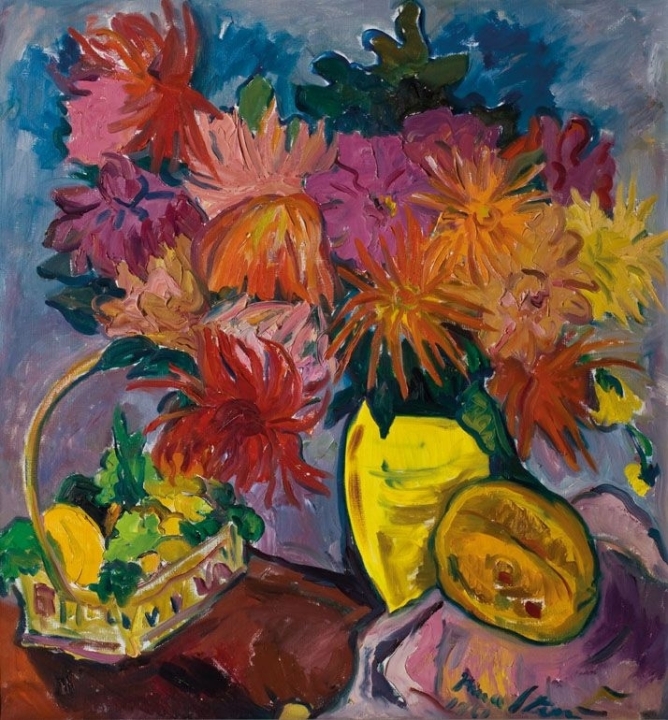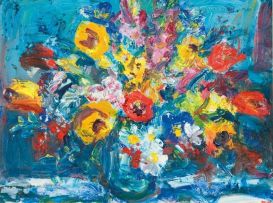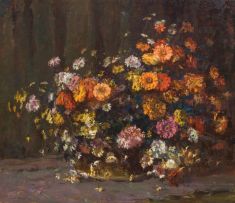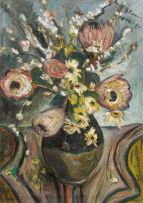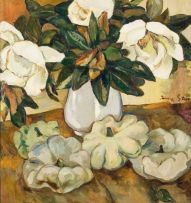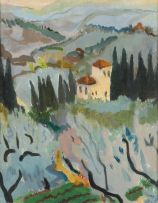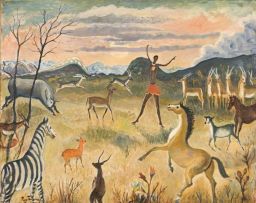Important British, Continental and South African Paintings
Live Auction, 24 May 2010
Session Two
Incl. Buyer's Premium & VAT
About this Item
signed and dated 1960
Notes
The only known still life painted by Irma Stern with indigenous flowers holds a unique place in the artist's oeuvre. Given their status as a national symbol and the predilection of lesser artists to sentimentalise them, proteas are a difficult subject, avoided by most serious artists. Stern however, was not deterred.
In this arrangement, she has gathered together both European and indigenous Cape elements - an unusual practice at the time. According to Dr John Rourke, President of the Botanical Society of South Africa and former head of the Compton Herbarium at the Kirstenbosch Research Centre, proteas were not commercially available at the time.[i] He remembers only one person cultivating them commercially at this time. Frank Batchelor was growing Proteas in the Devon Valley, Stellenbosch in the 1940s and supplied them to a flower shop located on the corner of Main Road and Rhodes Avenue in Mowbray near Stern's Cecil Road home. In all likelihood, Stern would have seen them there and determined to rise to the challenge of painting them.
The genus protea displays such a remarkable variety in plant and flower size, habit and colour that it was named after the Greek god, Proteus, who could change his shape at will. This painting, according to Dr Rourke, clearly depicts Protea Magnifica, easily recognised by its broadly ovoid flowerhead with characteristic central black beard. There are also branches of flowering peach or almond blossom in the vase as well as some daisies, which in Dr Rourke's opinion, are probably Arctotis. All are spring flowering species, making this painting a celebration of spring.
Also notable is the fact that Stern returned to the painting over a period of nine years before being thoroughly satisfied with the result. Unlike many of her brilliantly coloured still lifes, the colour register in this notable painting is more solemn and perhaps cerebral.
Stern enjoyed composing her still lifes by drawing on her substantial collection of vases, cloths, mats and objets d'art. It is instructive to compare the varied treatments of the same objects by the artist at different times. Here the composition is anchored by a container which, according to Marion Arnold, is a twentieth-century Chinese martaban with a mottled, light brown ferrous glaze on the upper section. [ii] The same container appeared in Still Life with Red Flowering Gums on Strauss & Co's inaugural Cape Town sale in October 2009. Beneath the container is a woven Congolese mat.
[i] All information on the flowers in this painting was supplied by Dr Rourke in an email dated 27 March 2010 and in conversation with Emma Bedford on 28 March 2010.
[ii] Marion Arnold, Irma Stern: A Feast for the Eye, Fernwood press, 1995, p129.
